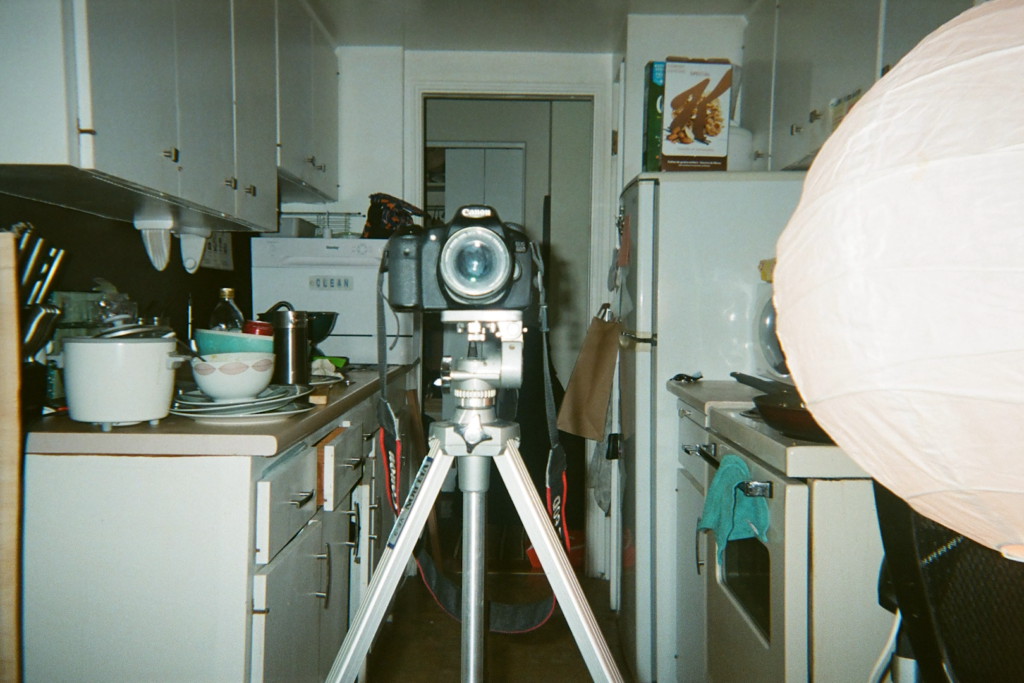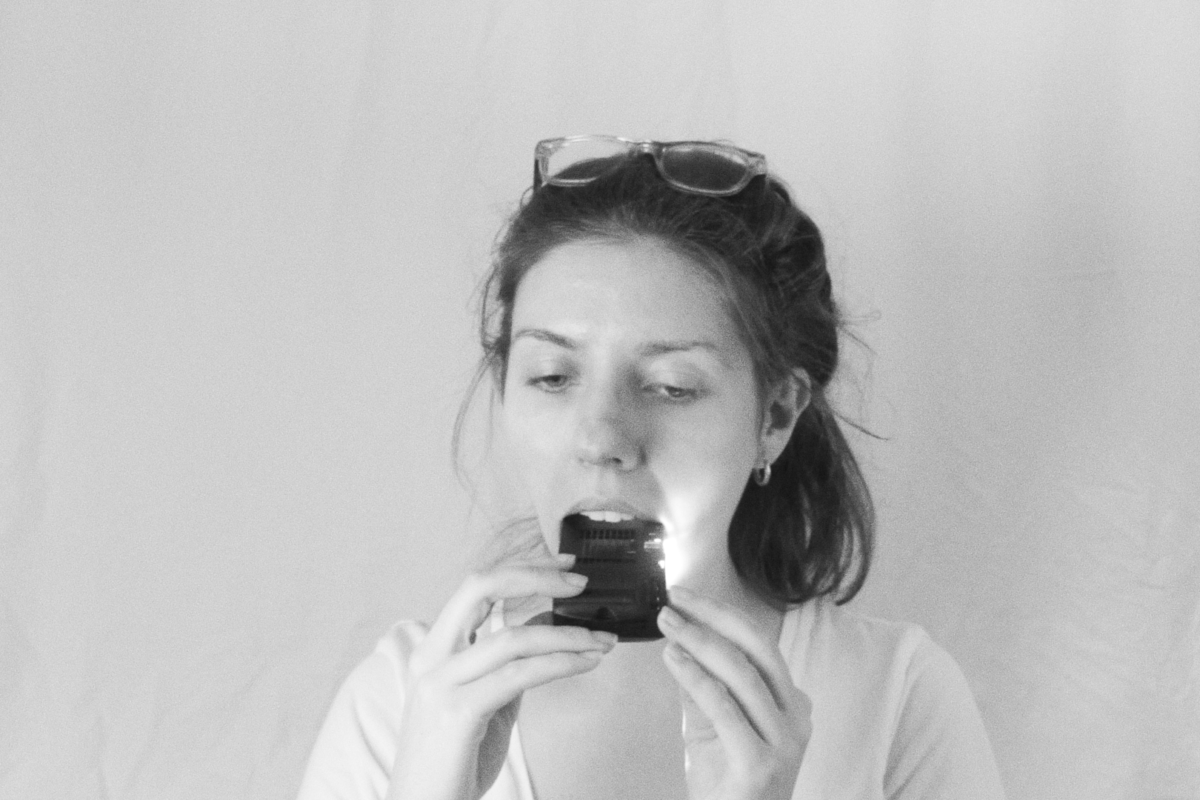Black Box Investigations is an Official Selection at the Vancouver International Film Festival. It premiers Sunday, October 1st, 8:30pm at Vancity Theatre.
To view a photograph or filmstrip is to partake in a miracle of both optics and body science. On the first layer, film — when captured and when projected — creates a complex artifact and illusion with shadows and photons. It’s a system whose triggering machinery is contained in a “black box” — a camera. On the second layer, that film only has any meaning because of the way our eyes process said photons and shadows, and then communicate that information to the brain. The second half of the film-viewing experience is contained in another “black box” — our bodies and skulls and neurons.
In her latest short, director Paige Smith pokes at these “black boxes” — two self-contained systems whose inner workings are invisible to most humans; but that nonetheless work in harmony to give us the experience of watching a movie or viewing a picture.
The short opens with Smith unwrapping a Fujifilm disposable camera so that it’s stripped down to its basic frame — literally a black box. It also creates a hall of mirrors — a camera filming a camera, since we are seeing the “black box” itself. The film rapidly cuts between the shots her various cameras capture, especially as they focus in on the film’s second subject — the human body, often captured as no more than a brown blur.

At the halfway point, the film pivots and we witness a gleeful and surprising disassembly of the Fujifilm that opened the short. For the film’s remaining minutes, we review the innards of the camera. Eventually, the two black boxes merge, captured by the other unseen camera, the eventual image viewed by the unseen person (you). A two-body system becomes a four-body system.
It’s a clever short that challenges you to reassess your understanding of the medium down to a fundamental component level. It also radiates playfulness, with a few moments of comic timing that play like a punchline. Smith sacrifices neither her sense of humor nor her experimentation with the medium in crafting a clever dissection of the building blocks of both film and audience.
The sound design of the short is also great and distinct: the familiar and nostalgic sounds of a disposable camera (whirring of a charging flash; clicking of shutter) is crisply captured and gradually builds to a rhythmic pulse. Clicking and crashing fill the soundscape, the effects slightly uncanny. The most striking and disruptive noise is not a noise at all, but the silence that accompanies some of the still shots of the Fujifilm camera.

Filmmakers have been using cinematic techniques to explore the bounds of the human body for as long as cinema has existed; the 1901 trick film The Big Swallow, for example, uses the disconcerting imagery of a zoomed-in mouth to memorable effect. Early cinema, too, manipulated the inner workings of film and camera to its own design; Georges Melies was a master of such tinkering to dramatic effect. More than a century later, despite (or perhaps because of) an ever-changing set of film techniques and technologies, groundbreaking filmmakers like Paige Smith are still exploring these same concepts.
Is It Good?
Very Good (6/8)
Dan is the founder and head critic of The Goods. Follow Dan on Letterboxd. Join the Discord for updates and discussion.


2 replies on “Black Box Investigations (2023)”
This is a thought-provoking write-up on a short I’d now like to see, and I feel slightly guilty that my first thought on reading the title was to map it onto the tune of Muse’s “Black Holes and Revelations.”
Supermassive black box
I actually saw Muse live opening for U2 in 2009. Fun show.